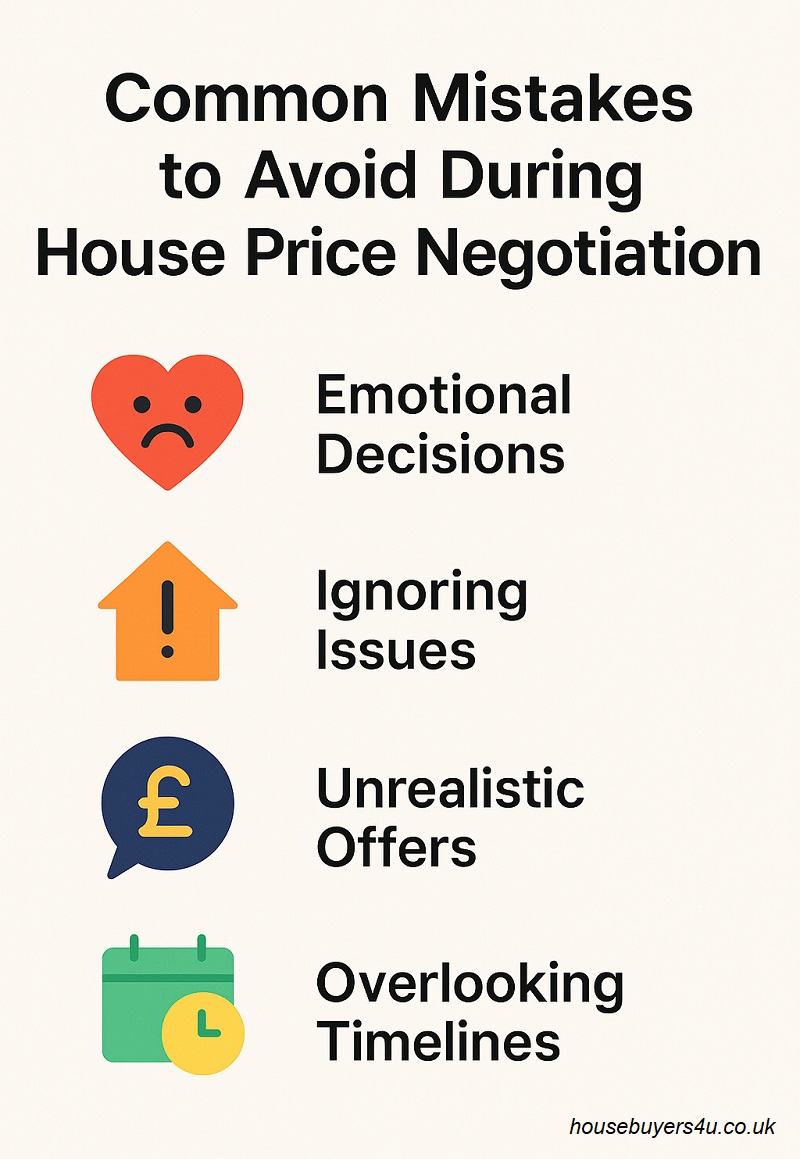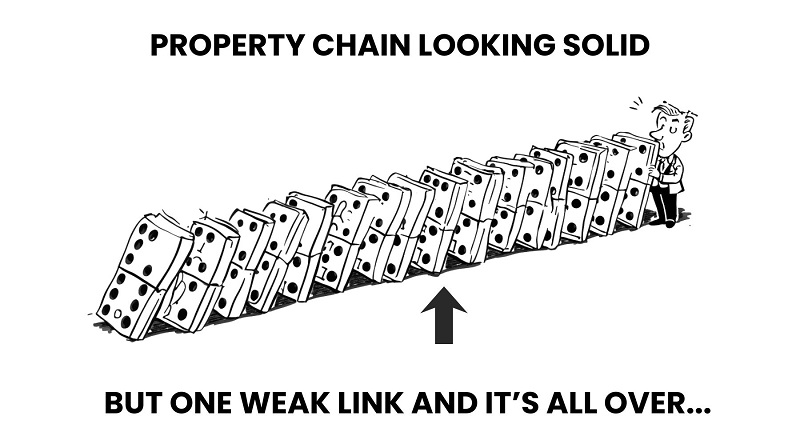The Do’s and Don’t’s of House Price Negotiation

Updated: October 2025
Negotiating a house price is one of the most important parts of any property transaction. Whether you’re buying or selling, understanding how to approach negotiation can help you secure the best outcome, balancing value, timing, and confidence at every stage.
Key Takeaways:
- House price negotiation is when buyers and sellers settle on a fair property price.
- A clear strategy based on solid research, timing, and conditions gives you the best edge.
- This guide covers the process, common mistakes, and how both sides can reach a fair deal.
What Is House Price Negotiation?
House price negotiation is the process where buyers and sellers agree on a property’s final price through informed discussion. It’s shaped by factors like market conditions, property condition, and timing, and when approached calmly and strategically, it helps both sides reach a fair and successful agreement.
How to Negotiate on House Price (The Practical ‘Dos and Don’ts)
Negotiating successfully isn’t about who pushes harder; it’s about preparation, timing, and communication. Here’s how both buyers and sellers can approach house price discussions with clarity and confidence.
How to Negotiate Effectively - The ‘Dos’
1. Present your offer clearly
For buyers, clarity builds trust. When making an offer, include key details like your mortgage status, deposit amount, whether you’re in a chain, and your preferred completion timescale. If you’ve researched local sold prices, reference that data, it strengthens your position and shows your offer is fair.
2. Stay realistic
Both sides should understand current market trends before negotiating. Expecting a 10–15% price swing in a balanced market is rarely realistic. Look at recent sales data within a half-mile radius to set expectations grounded in fact.
Related Read: What is my house actually worth?
3. Be flexible
Flexibility often closes deals faster.
-
Buyers: Offer a completion date that suits the seller.
-
Sellers: Be open to minor price adjustments if it means a smoother, faster sale.
Small compromises can save weeks of back-and-forth.
4. Keep emotions out of it
Property sales often carry emotional weight, but decisions should remain logical. Buyers shouldn’t overpay out of attachment, and sellers shouldn’t refuse fair offers due to sentiment. A calm, objective approach usually leads to a better deal for both sides.
5. Communicate professionally
Use your estate agent or conveyancer to manage communication where possible. Offers and counteroffers should always be documented, ideally via email or written confirmation, to avoid misunderstandings later.
What not to do During House price Negotiations - The ‘Don’ts
1. Don’t take rejection personally
Rejection is normal. A declined offer isn’t the end; it’s a signal to reassess. Ask for feedback, refine your position, and if appropriate, return with a revised offer supported by evidence.
2. Don’t rush
Pressure leads to mistakes. Rushing into a decision can cause overpayment, undervaluation, or deals falling through during conveyancing. Take time to review each counteroffer carefully.
Related Read: Everything you need to know about conveyancing
3. Don’t ignore survey results
If a survey flags issues, treat them as negotiation tools, not deal-breakers. Buyers can request a small reduction or minor repairs; sellers should be prepared to respond reasonably to maintain momentum.
4. Don’t go silent
Disappearing mid-negotiation is a red flag for both sides. Keep communication open, even if progress is slow, to maintain trust and prevent assumptions.
Expert insight from Paul Gibbens, Housebuyers4u:
"Negotiation is about balance. The best outcomes happen when both sides are transparent, realistic, and willing to compromise slightly. The goal isn’t to ‘win’ the conversation, it’s to reach a fair deal that keeps the sale moving"
Common Mistakes to Avoid During House Price Negotiation
- Getting too emotional: Letting sentiment take over often leads to overpaying or rejecting fair offers. Stay objective and focus on facts, not feelings.
- Ignoring property flaws: Both buyers and sellers should factor in survey findings and visible issues. Addressing these early prevents last-minute renegotiations.
- Making unrealistic offers: Offers that are far below or above market value waste time and can damage credibility. Base your numbers on recent sold data, not wishful thinking.
- Overlooking the chain or time-frame issues: A great price means little if the chain collapses. Always confirm timelines and financial readiness before committing.
Typical Outcomes in Negotiations (Data Insight)
Here’s how negotiation factors can influence outcomes in real UK property sales, based on Housebuyers4u’s 2025 seller data and national market trends.
| Factor | Effect on Buyer | Effect on Seller | Typical Impact |
|---|---|---|---|
| Market conditions | Buyers gain leverage in slower markets with reduced demand. | Sellers often accept lower offers to secure a sale. | 3–7% price movement depending on local demand. |
| Property condition | Buyers use defects or survey issues to negotiate discounts. | Sellers face pressure to reduce price or make repairs. | £2,000–£10,000 average reduction after survey. |
| Time on market | Longer listings signal flexibility; buyers feel confident offering less. | Sellers lose urgency advantage after 8+ weeks unsold. | Offers 5–8% below asking after two months. |
| Chain complexity | Buyers may hesitate if multiple parties are involved. | Sellers risk longer completion and potential fall-throughs. | 1 in 3 sales fall through due to chain delays. |
| Cash vs mortgage buyer | Cash buyers secure stronger negotiating power with quick completion. | Sellers trade slight discount for faster, guaranteed sale. | 10–14 days faster completion on average. |
| Local competition | Buyers face bidding pressure when demand exceeds supply. | Sellers can hold firm or spark bidding wars. | +2–5% above asking in competitive postcodes. |




